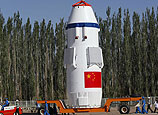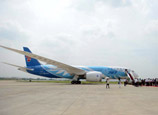
41 years ago, U.S. President Nixon visited Chairman Mao in Beijing, and the two leaders offered the "historic handshake across the Pacific". Today, Chinese President Xi Jinping is meeting U.S. President Barack Obama in California. This meeting will see the launch of a "strategic dialogue across the Pacific". As the Great Wall of China bore witness to the transition of the two nations from isolation to contact, so Annenberg Estate will watch over the defining of a new set of coordinates in the Sino-US relationship. Expectations are high that this new relationship will be a positive one.
A spectacular, future-oriented brainstorming session is in prospect. Isolated from the hubbub, Annenberg Estate lends a sense of mystery to the Xi-Obama meeting. One thing we can be sure of is that it will set the tone for the next decade of Sino-US relations. The world will look on in fascination, searching for any clue as to how these relations might unfold.
While there have been ups and downs over the four decades that have elapsed since the Mao-Nixon meeting, fundamental changes have added impetus to the development of Sino-US relations, turning from "external demand" to "domestic demand ". At the time of their mutual opposition to the Soviet threat, the forces that drove China and the United States closer to each other were passive. Today, as ties between the two countries grow, the impetus behind their rapprochement is an active and sober call from the heart.
After the Cold War, once the Soviet threat had disappeared, Sino-US relations became erratic, as both sides cast around for a new strategic base to the relationship. But whether it was action against terrorism, or economic cooperation, or cross-border issues, both sides found it difficult to identify a cohesive force as strong as the Soviet threat. Little wonder that in some American minds the idea began to take form that China must be treated as a strategic rival.
The 9/11 incident forced the United States to focus on anti-terrorism, fighting two wars over a decade and consuming – indeed wasting - vast resources. The financial crisis ushered in hard times for the United States. Some domestic opinion in the United States even sees the first decade of the 21st century as the "lost decade". In response, Obama has introduced the "New Deal" at home, while trying to rebalance his global strategy. Asia has become one of the centers of his new blueprint, and China happens to be the biggest nation in this region. How to get along with China? This is a question that will put the United States to the test.
The Xi-Obama meeting is a timely one. Each of the leaders is looking forward to meeting his opposite number, and each is expecting that the other will offer some gesture of strategic acknowledgement.
Read the Chinese version:“習奧會”將為中美十年定調
Author: Ruan Zongze, deputy director of the China Institute of International Studies
Source: People's Daily Overseas Edition




















![]()
